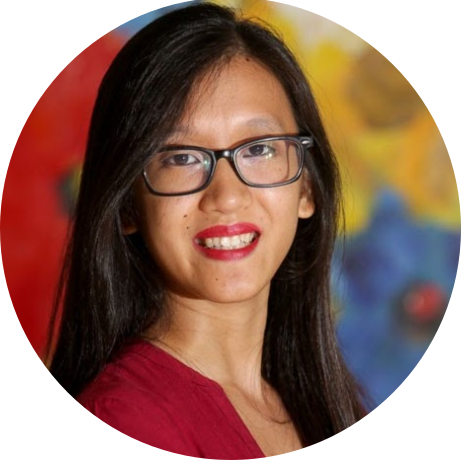Someone in one of my WhatsApp groups posted a graphic claiming – without any attribution whatsoever – that a woman died because of air pollution in Pasir Gudang, Johor.
Even though other people in the group called the poster “fake news” as they shared the Health Ministry’s statement disputing the allegation, one shot back saying: “Easy for you to say, since you’re not affected.”
It is extremely disturbing that we so easily believe random graphics, which could have been created by anyone, over statements by health authorities.
This is not to say that Malaysian authorities are always right, of course. The case of Pasir Gudang, where over 1,100 people suffered breathing difficulties, is frustrating because the authorities have yet to uncover the cause of the mysterious incident, almost a month after schoolchildren fell sick.
So public skepticism is, to some extent, understandable.
The Health Ministry also could have handled better the case of the 15 Bateq deaths in Gua Musang, Kelantan.
Instead of brushing off the need for an independent investigation into the Orang Asli tragedy – simply because autopsies were done on only one-third of the deceased, or three people – the Health Ministry should proactively respond to doubts cast by both doctors and the Bateq people over the official cause of death of measles. The Health Ministry could ask for an inquest.
Allegations of health authorities forcing birth control shots onto Temiar Orang Asli women are particularly disturbing. It is not enough for Health Minister Dzulkefly Ahmad to simply say that health officials were merely trying to protect anaemic women from potentially harmful pregnancy.
He must explain exactly how health officials have been treating the Orang Asli over the years and if the “forced sterilisation” of the indigenous is an entrenched institutional practice. Dzulkefly can’t just say that he can’t imagine such things happening and dismiss the need for investigations.
It’s not surprising if public health care providers don’t bother informing Orang Asli women about how birth control injections or pills work. The medical profession in general is already perceived to be condescending towards regular people, filled with gender biases and dismissals of women’s experiences.
After I got tired of getting headaches during my pill-free week every menstrual cycle (turns out the seven-day break in contraceptive pill regimens has no health benefits whatsoever), the nurse at the government clinic I regularly visit suggested earlier this year that I switch to the Depo-Provera shot, which I only need to take once every three months.
When I specifically asked my nurse about side effects, she merely told me that I would experience irregular bleeding, but it would eventually go away. She neglected to tell me that it would take up to 10 months, or even two years, to get pregnant after stopping the birth control shot.
I had to Google that myself, which the nurse confirmed after when I asked her about it. If government health professionals don’t give full information to middle class women like me, what more the Orang Asli?
Our bodies are the only thing in the world that we really own. There is nothing more pernicious than the State, or other people, trying to interfere with whatever decisions we make with regards to our bodies.
Although improving public health is a good objective, the State should never force people to do things to their bodies that they don’t want to, even if it’s supposedly for their own good.
People must be allowed to make “bad” decisions for their health, simply because they have bodily autonomy and the right to individual liberty. We can only persuade.
An Ipsos survey claimed that Malaysians trust traditional media like newspapers, radio and TV more now than five years ago, going against the global trend of declining trust in the media.
I don’t believe that. From the way Malaysians share screenshots of headlines, instead of sharing the hyperlink, it looks like they’re too lazy to read even a simple news report. Then there is the forwarding of unattributed “articles” on WhatsApp – without hyperlinks, just text – that make wild claims like how coconut oil can cure Alzheimer’s.
The change of government did not increase trust in our institutions, simply because the independence of our institutions rotted over the decades under the leadership of some people who remain in power today.
When it comes to health, the lack of trust in our institutions is doubly worrying, especially given misinformation on Facebook about health topics in general.
A study on health stories found that seven out of 10 most-shared articles last year on health contained misleading information. Researchers found that widely shared articles about food and nutrition had the poorest credibility, as many of them came from lifestyle blogs or dubious health-related websites.
But what can we do? Legislation, I believe, is useless because arresting people for sharing fake news will only strengthen perception of oppression and unjust prosecution.
What we want is to persuade people and to convince them of the so-called “truth”, or “facts”.
To do this, Pakatan Harapan (PH) must resist using secrecy as the default, instead of openness and transparency. The government (not just the Health Ministry) must volunteer information regularly and, more importantly, enable the public to easily access information and detailed reports, not mere press statements by officials.
It is not enough anymore to just make a statement. The people are more demanding now, and rightfully so.
To Dzulkefly’s credit, however, his press secretary is, quite frankly, one of the best in the PH administration. The health minister’s office frequently invites questions from the media on various issues ahead of time.
PH may find it tough to deal with social media in government now, despite benefiting from it when they were in the Opposition.
But I don’t believe that social media has necessarily made people inflexible and trapped them in so-called echo chambers, where we only believe things that reinforce our existing beliefs.
I believe that it is possible to persuade people to change their minds. PH can help in this process by being more forthcoming and less defensive.

Boo Su-Lyn is CodeBlue editor-in-chief. She is a libertarian, or classical liberal, who believes in minimal state intervention in the economy and socio-political issues.








